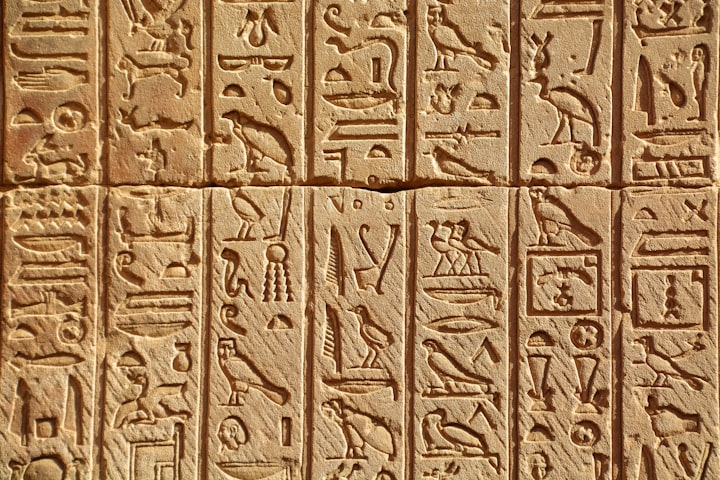Ethics behind Archeology
A gateway to our past

Voices from a distant past.
“Imagine standing in a room in a large museum. As you look around the dimly lit gallery, you begin to recognize shapes: a basket, an arrow, a beautiful decorated carving, a shield. Some of the objects are foreign to you. What if this object could speak? What would they tell you about themselves? How have they been used? Where did they come from? How did they get in the museum? Whom do they belong to?” When I was looking for information about Archeology, this quote by Professor Ari Berk really made me reflect on the relevance of the work of an Archeologist, travelling the wandering road of history in their never ending quest for answers. Impressive is the fact that the object itself can answer all those questions. To listen to those tales of a distant past, you need an interpreter, a guide into the realm of past events.

Definition of Archeology
According to the Merriam-Webster Dictionary, Archeology could be defined as “The scientific study of material remains (such as tools, pottery, jewelry, stone walls, and monuments) of past human life and activities.” The true scope of this science is to broad our understanding of human culture. An archeologist could be studying fossils remains buried deep into the heart of the Serengeti, with the same diligence he displays while working on a 20th century building, right in the middle of Manhattan. There’s no such thing as boundaries to our acute sense of curiosity.
Is the past dead and buried?
Archeologists constantly work in a grey area, a place where different shades of white blend with soft brushes of black. He is compelled to share his finding to the population, a new page has been revealed for all of us to read. Humankind acting as a vivacious reader, claim his price without thinking of the consequences. How many of the finding are they allowed to keep? How much analysis does this piece needs? Who should be the keeper? There lies the paradox, and coming out of his hidden place, greed creeps in.

DIG DEEP
According to my research, the nineteenth century was the start of systematic archeological research. Prior to that, there were no professionals on the field of Archeology, just wealthy wanderers who happen to have other means to support their families. Those where the trailblazers of modern archeology, adventure seekers ready to compromise security for uncertainty. The development of museums around the world generated a demand of ancient artifacts. Many of those self-taught explorers of ancient civilizations excavated their path into history as sport, leaving behind a trail of scars all around the world.
Archeological resources are limited; they remain untouched in a pristine representation of a specific timeframe. Most archeological finds are recovered using excavation as the norm. This technique must be applied with utter care, by digging the soil, you’re destroying the evidence they held, a vast amount of information could be lost if not done properly. Some researchers agree in the fact that a good excavation enhances our understanding of the carved in stone fragile past. A bad one distorts and impairs at will.
A professional must preserve and manage archeological findings with all due diligence, that includes the findings on human remains. Everything must be labeled and accurately identified. Like in many other disciplines, a strict code of conduct bounds all archeologists. A code that spreads its implications both on-side and off-site. Health and safety conditions are as important as territorial, or scientific legal obligations.

Finders keeper?
The question of who owns archeological artifacts isn’t one that could be easily answered. Different countries have their specific way of addressing this question. It’s not only a matter of law, religion takes center stage too when it comes to Archeological findings. Most of the legislation today draws a line between what belong to the state and what could belong to the finder. For instance, in New Zealand there’s a law that certifies: Every item found after April 1, 1976 are property of the Crown. In the other hand Sweden has a different approach pertaining cultural findings. If more than one artifacts have been found, they must be reported immediately to the government. The way to encourage and enforce this law is by attaching a reward to the object.
In the United States of America, there’s a figure called The National Historic Preservation Act. It works to preserve and claim any artifact found in its territory. Bringing a vast array of penalties on those who dare to excavate without a permit. Collectors and Museums alike have been guilty of buying looted or stolen goods.

Who owns history?
Can the past be owned? Well, the past lies in the intangible realm, but can we certainly own those artifacts that belong to our past? To keep on with this idea, we need to first identify who owns the land on which it was found. Some scholars will argue that nobody owns the land. Well, if that’s the case, everything on land would be free for all, am I right?
Most nations claim that artifacts founded on public land belong to the state. Often that rule includes private land that originally belongs to the State. First of all, land belongs to the government which governs it. There’s no exception to the rule.

References.
“Fereral Laws and Archeology.” Mnsu.edu.2010. http://www.mnsu.edu/emuseum/archaeology/archaeology/federallaws.html
“General Archaeology Questions.” Washington.edu.2010
http://www.washington.edu/burkemuseum/collections/archaeology/faqs_qa.php
“Archaeology.” Merriam-Webster.com Dictionary, Merriam-Webster.
http://www.merriam-webster.com/dictionary/archaeology. Accessed 23 Oct. 2020
About the Creator
Giovanni Profeta
Swimming through life one stroke at a time.







Comments
There are no comments for this story
Be the first to respond and start the conversation.